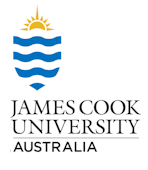My research has focused on semiarid environments. The abiotic factors that shape these moisture-limited landscapes includes research in hydrology, soil science, micrometeorology and climatology. Overall, my research since completing my PhD has focused in two areas.
Carbon and water budgets, climatology and hydrometeorology of semi-arid and tropical environments: Photosynthetic carbon uptake and decomposition in semiarid landscapes are limited by the interactions of temperature, atmospheric demand for vapour, extremes in moisture availability and limited substrate supply. Furthermore, the abundant sunshine and frequent lack of soil moisture can promote photodegradation, which provides a short-circuit to the soil carbon cycle. Thus, carbon is lost directly from the litter or standing dead biomass and limits supply of decomposable substrate into the soil. Because the carbon cycle in these environments is driven by the dynamics of rainfall and solar radiation, my research also involves understanding how hydrometeorological patterns affect ecosystem productivity and evapotranspiration.
Ecohydrology of groundwater-dependent ecosystems: I began my research through investigations of the plant ecophysiology, ecohydrology and evapotranspiration of groundwater-dependent ecosystems along riparian corridors in the semiarid southwestern USA. Because of fluctuations in water availability that I experienced in my research, I developed my interest in hydrometeorology, climatology and hydrology.
Keywords: Biosphere-atmosphere exchange of carbon, water and energy; photodegradation; soil hydrology; climate dynamics; micrometeorology; eddy covariance; soil science; photosynthesis and productivity; plant water relations; hydrometeorology; ecohydrology
Experience
-
–presentResearch fellow in environmental sciences, University of Technology Sydney
Education
-
1999University of Nevada, Las Vegas, Biological Sciences
- Cairns, Australia
- @jamie_cleverly
- Article Feed
- dr.jr.cleverly@gmail.com
- jamie.cleverly@jcu.edu.au
- ORCID
- Joined


